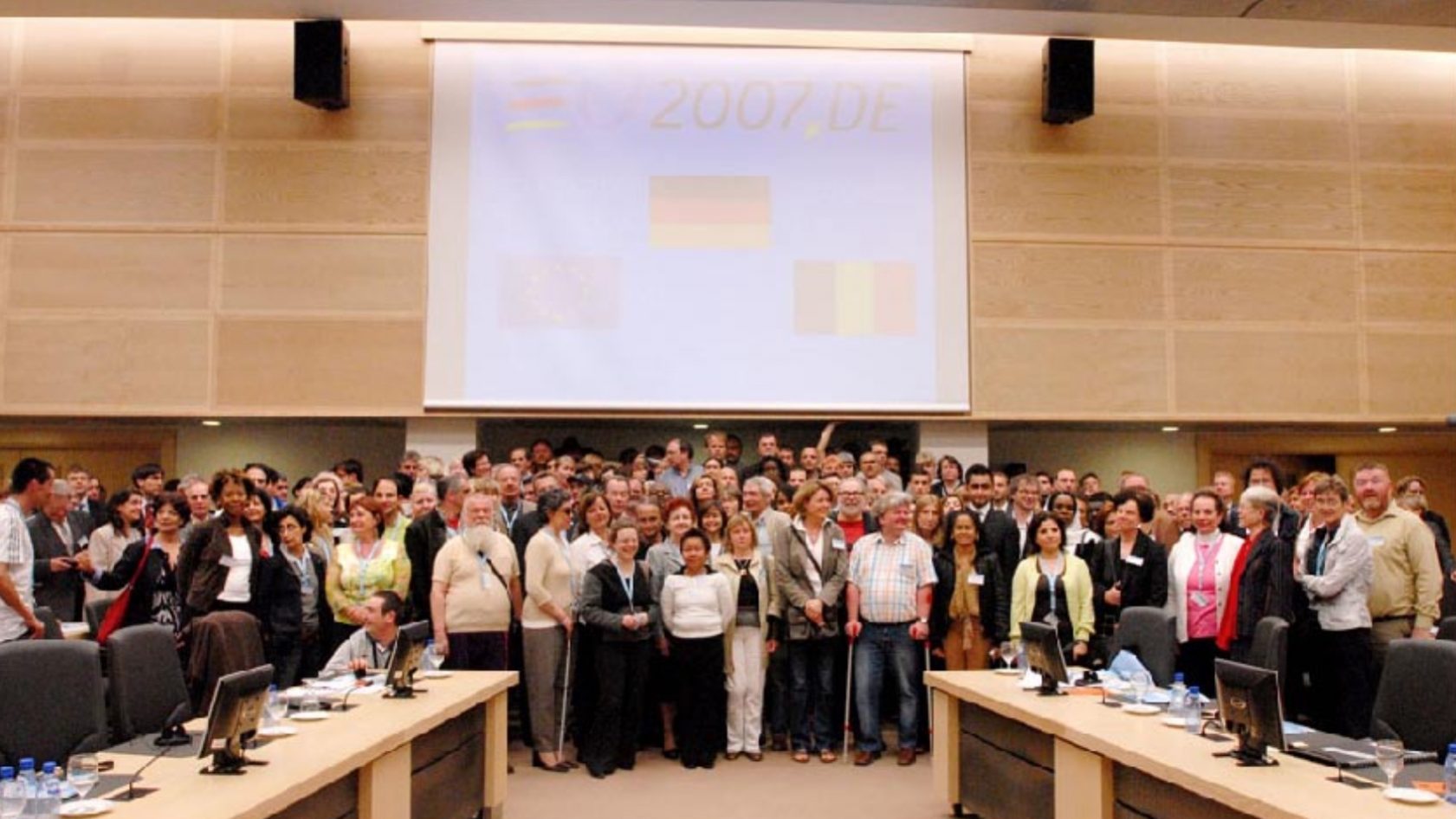-
Launch the EMIN 2:
In the follow-up of EMIN 1 (2013-2014), EAPN coordinated the second phase of the European Minimum Income Network, EMIN 2, for the period 2017-2018. The overall aim of EMIN 2 project was the progressive realisation of the right to adequate, accessible and enabling Minimum Income Schemes for people of working age. The project gathered informal networks of organisations and individuals such as anti-poverty NGOs, Trade Unions, women’s organisations and experts, professionals and academics all active in the fight against social exclusion. EMIN 2 was organised at EU and national levels, in all the Member States of the European Union and also in Iceland, Norway, Macedonia (FYROM) and Serbia. The project received funding from the European Union Programme for Employment and Social Innovation (EaSI) to develop its work in the EU Member States and at EU level.
-
EAPN Conference “Learning from the past to beyond 2020 – What EU strategy to fight poverty, exclusion & inequality?:
An important annual conference of EAPN. The current Europe 2020 Strategy for smart, sustainable and inclusive growth set a target to reduce the number of those in poverty by at least 20 million by 2020, to be delivered through the coordination cycle of the European Semester. There has been little progress on the target however, and although poverty is now gradually reducing, nearly 119 million people are still at risk of poverty and/or social exclusion. Within the process, civil society’s role has been marginalized, crucially. The EU is debating the future of Europe and a strategy for beyond 2020. The European Pillar of Social Rights seems to present an opportunity, although its impact on poverty reduction is unclear. The need to deliver on the UN Sustainable Development Goals in the EU, committing to end poverty, also seems to offer hope, as long as it supports upwards social convergence. However, in a context of increasing anti-EU feeling, the EU is tending to stick to narrow internal market priorities, with social priorities side-lined. EAPN’s view was different and this Conference was particularly useful to express its concerns. Unless the EU can recover a ‘social heart & brain’ and ensure an effective participation of people experiencing poverty and their organisations, it will be increasingly difficult to get support from people on the ground for the EU. We must develop a positive vision of Social Europe, with concrete proposals and an effective rights- based strategy to fight poverty.
-
Hiring of the 4th director:
Leo Williams (UK)
-
16th European Meeting of People Experiencing Poverty:
“Let’s tackle in-work poverty” On 9 and 10 November 2017, the 16th European Meeting of People Experiencing Poverty took place. It was organised by the European Anti-Poverty Network with support from the European Commission and the EAPN Fund. The meeting is a unique opportunity for people with direct experience of poverty from 30 different national delegations to address and exchange with a vast number of stakeholders.
-
29th GA – Dublin (Ireland):
“What does the future of Europe hold for people experiencing poverty?”
-
Launch of the EC’s white book for the future of Europe (March):
Quite surprisingly at the 2017 State of the European Union address, President Juncker unveiled a roadmap detailing the main steps towards a more united, stronger and more democratic Union. Building on this, national leaders met in Tallinn, Estonia, and agreed on a Leaders’ Agenda – a list of the most pressing issues and challenges for which solutions should be found, ahead of the European elections in 2019. On 9 May 2019, at a summit in Sibiu, Romania, national leaders are expected to mark the culmination of this process with a renewed commitment to a EU that delivers on the issues that really matter to people. In order to achieve this objective, the Commission proposed a White paper (1 March 2017) setting out possible paths for the future of Europe to face “many challenges, from globalisation, to the impact of new technologies on society and jobs, to security concerns and the rise of populism.” The White paper offered five scenariosfor how the Union could evolve, depending on the choices we make. The White paper marked the start of the debate. Work continues in earnest on a clear path forward, ahead of the European Parliament elections in May 2019.
-
FEAD Platform for Exchange of experience & Dissemination of outcomes:
EAPN contributes to the development of the FEAD (Fund for European Aid to the Most Deprived) Platformfor exchange of experience and dissemination of outcomes. The Fund for European Aid to the Most Deprived (FEAD) supports EU countries’ actions to provide material assistance to the most deprived. This includes food, clothing and other essential items for personal use, e.g. shoes, soap and shampoo. Material assistance needs to go hand in hand with social inclusion measures, such as guidance and support to help people out of poverty. National authorities may also support non-material assistance to the most deprived people, to help them integrate better into society.
-
Goteborg Summit (November):
The European Pillar for Social Rights is approved by the 3 institutions: Parliament, Council and European Commission



